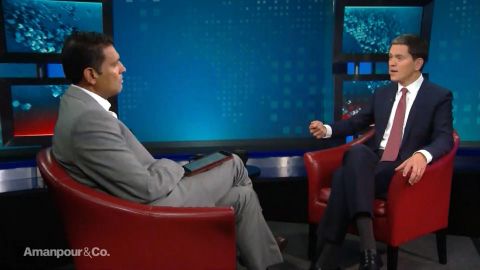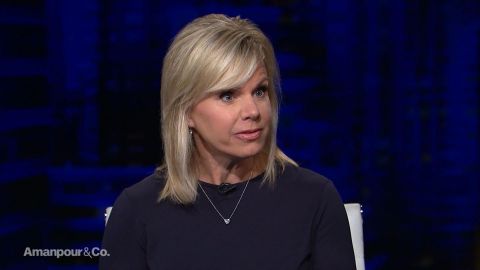Read Transcript EXPAND
CHRISTIANE AMANPOUR: But how far will it go because women are also really upset about the guardianship law for instance? They can’t basically go to a shop without their male relatives.
ADEL BIN AHMED AL-JUBEIR, SAUDI FOREIGN MINISTER: I mean I think the changes that are happening in Saudi Arabia are amazing. The idea is to reclaim our lives, to introduce a culture of innovation and progress, and you can’t do that in fact if your company is not part of it. So women have to have their rights and women have to be participants in our society. We now have women who are CEOs of some of our largest banks and companies. We have increased the participation of the women in the workforce and we continue to push to the cinemas and entertainment and thriving our secondary issues but they’re important signals. This is how it is moving forward. The guardianships I think has been exaggerated. Women can now go get jobs. They consume –
AMANPOUR: Not according to (INAUDIBLE) you respect.
AL-JUBEIR: Well, let’s go take a look at Saudi women and ask them and see. When you say they can’t go to the shop without their male partner, that’s not true.
AMANPOUR: You know what I’m saying. They can’t go leave the country. They can’t do important things, drive, take a trip across the border. I mean they can’t do a lot of things without their husband or if they don’t have a husband.
AL-JUBEIR: Yes. I think the guardianship system has the perception of this is exaggerated. There are certainly some restrictions and I believe it’s a matter of time but I think the way people describe it today is vastly exaggerated.
AMANPOUR: To that point, it does seem a little bit one step forward, one step back because even just as the driving ban was being lifted, quite a lot of female activists were in fact arrested. And, in fact, one of them, she’s a shoe activist and she potentially faces the death penalty for protest-related charges. This may not be about driving but other kind of political protests. What’s the world meant to make of that?
AL-JUBEIR: Christiane, I think the notion that these were activists and they were arrested because they’re activists is not correct. The prosecutor said that their charges are going to national security. Their charges are related to working with one government. Their charges are related to working with people who seek to undermine the Kingdom of Saudi Arabia. Their charges were related to trying to recruit people in sensitive positions in order to extract information from that and then pass on the hostile powers. And those charges are being investigated. Some of them have been released. Others will face trial. When they go to trial, the world will know what the charges are and the world will see the evidence. So the idea that these, who are activists, that were arrested because they support women driving is ridiculous.
AMANPOUR: Well, I did say they probably necessarily weren’t. These women, the previous ones were protesting for more freedoms around the driving ban and they were arrested.
AL-JUBEIR: But not for that reason. These were not about the human rights or seeking rights. These arrests were about national security.
About This Episode EXPAND
Christiane Amanpour interviews Gretchen Carlson, Chairwoman of the Miss America Organization and former Fox News anchor; and has an exclusive interview with Adel Ahmed Al-Jubeir, the Saudi Arabian Foreign Minister. Hari Sreenivasan interviews David Miliband, President of the International Rescue Committee.
LEARN MORE


